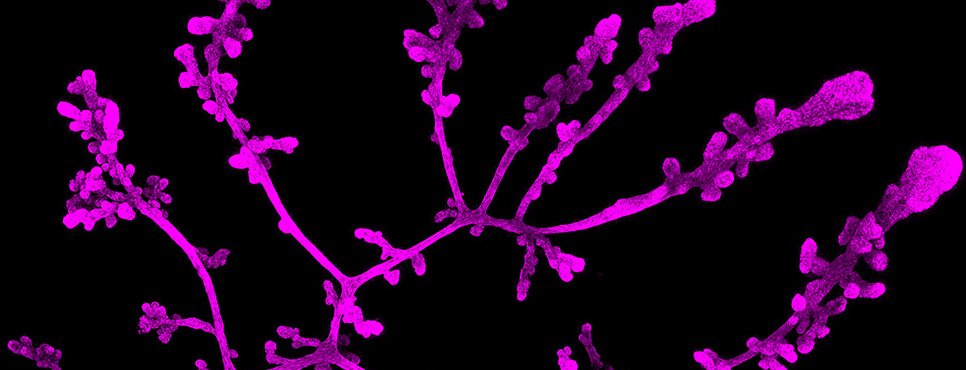Program
Friday, October 9, 2020
Saturday, October 10, 2020
- Plenary Session 1: Models
- Plenary Session 2: Inflammation, the Microenvironment, and Metabolism
- Plenary Session 3: Panel Discussion on Biomarkers
Sunday, October 11, 2020
- Plenary Session 4: Functional Interpretation of “Omics”
- Plenary Session 5: Heterogeneity
- Plenary Session 6: Personalized Risk and Prevention
Monday, October 12, 2020
- Plenary Session 7: Mechanisms of Treatment Resistance
- Plenary Session 8: Future Therapies and Immuno-Oncology
- Closing Keynote Session
Friday, October 9, 2020
Welcome and Keynote Lecture
6-7:15 p.m.
Welcome from Cochairs
6-6:15 p.m.
Opening Keynote Lecture
6:15-7:15 p.m.
Sir Michael R. Stratton, Wellcome Trust Sanger Institute, Cambridge, United Kingdom
Opening Reception
7:15-9 p.m.
Saturday, October 10, 2020
Continental Breakfast
7-8 a.m.
Plenary Session 1: Models
8-10:15 a.m.
Carlos M. Caldas, Cancer Research UK Cambridge Institue, University of Cambridge, United Kingdom
Alana L. Welm, University of Utah Huntsman Cancer Institute, Salt Lake City, Utah
Jos Jonkers, Netherlands Cancer Institute, Amsterdam, Netherlands
2 short talks from proffered abstracts
Break
10:15-10:30 a.m.
Plenary Session 2: Inflammation, the Microenvironment, and Metabolism
10:30 a.m.-12:45 p.m.
Robert Weinberg, MIT Whitehead Institute for Biomedical Research, Cambridge, Massachusetts
Joan S. Brugge, Harvard Medical School, Boston, Massachusetts
Valerie M. Weaver, University of California San Francisco Medical Center, San Francisco, California
2 short talks from proffered abstracts
Lunch (Provided)
12:45-3 p.m.
Poster Session A
1:30-3 p.m.
Plenary Session 3: Panel Discussion on Biomarkers
3-5 p.m.
Charles M. Perou, University of North Carolina, Chapel Hill, North Carolina
Gordon B. Mills, Oregon Health and Science University, Portland, Oregon
Laura J. van ’t Veer, University of California San Francisco, San Francisco, California
Evening Off / Dinner on Own
5 p.m.-
Sunday, October 11, 2020
Continental Breakfast
7-8 a.m.
Plenary Session 4:Functional Interpretation of “Omics”
8-10:15 a.m.
Mathew Garnett, Wellcome Trust Sanger Institute, Cambridge, United Kingdom
X. Shirley Liu, Dana-Farber Cancer Institute, Boston, Massachusetts
William C. Hahn, Dana-Farber Cancer Institute, Boston, Massachusetts
Christina Curtis, Stanford University, Stanford, California
2 short talks from proffered abstracts
Break
10:15-10:30 a.m.
Plenary Session 5: Heterogeneity
10:30 a.m.-12:45 p.m.
Jane E. Visvader, Walter & Eliza Hall Institute of Medical Research, Parkville, Australia
Samuel Aparicio, BC Cancer Research Centre, Vancouver, British Columbia, Canada
Nicholas E. Navin, The University of Texas MD Anderson Cancer Center, Houston, Texas
2 short talks from proffered abstracts
Lunch (on Own)
12:45-2:45 p.m.
Plenary Session 6: Personalized Risk and Prevention
2:45-5 p.m.
Cathrin Briskin, Ecole Polytechnique Fédérale de Lausanne, Lausanne, Switzerland
Douglas Easton, University of Cambridge, Cambridge, United Kingdom
Susan M. Domchek, University of Pennsylvania, Philadelphia, Pennsylvania
2 short talks from proffered abstracts
Poster Session B / Reception
5-7 p.m.
Monday, October 12, 2020
Continental Breakfast
7-8 a.m.
Plenary Session 7: Mechanisms of Treatment Resistance
8-10 a.m.
Jason S. Carroll, Cancer Research UK Cambridge Research Institute, Cambridge, United Kingdom
Brian E. Welm, University of Utah Huntsman Cancer Institute, Salt Lake City, Utah
Carlos L. Arteaga, UT Southwestern Medical Center, Dallas, Texas
Break
9:55-10:20 a.m.
Plenary Session 8: Future Therapies and Immuno-Oncology
10:20 a.m.-12:15 p.m.
Jenny C. Chang, Houston Methodist Hospital Cancer Center, Houston, Texas
Kornelia Polyak, Dana-Farber Cancer Center, Boston, Massachusetts
Geoff Lindeman, Walter & Eliza Hall Institute of Medical Research, Parkville, Australia
1 short talk from proffered abstract
Closing Keynote Session
12:15-1 p.m.
Keynote speaker to be announced
